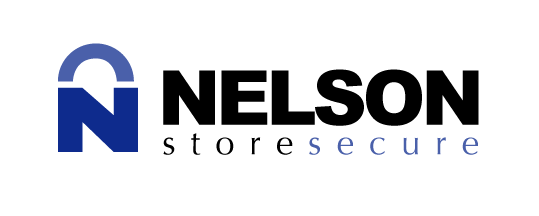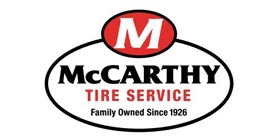Unlocking Potential: How AHL Shapes Future Hockey Stars

AHL player development is a critical component for nurturing the next generation of hockey stars. The American Hockey League (AHL) serves as a crucial stepping stone for players aiming to make it to the National Hockey League (NHL). By focusing on enhancing player skills and offering valuable game experience, the AHL plays a pivotal role in shaping the careers of young talent.
- Core of Development: The AHL structures its teams with a focus on developing players, ensuring that up-and-coming athletes receive the necessary training and exposure.
- NHL Affiliations: AHL teams, like the Wilkes-Barre/Scranton Penguins, are directly affiliated with NHL teams, providing a seamless transition for players progressing to the top league.
- Game Experience: The league mandates rules for game-day rosters that prioritize playing younger, developing athletes over more seasoned veterans, emphasizing growth over mere competition.
For fans in regions like Wilkes-Barre, PA, attending local games is a chance to witness future NHL stars in action, offering answers to searches for “hockey games near me.”
The Role of AHL in Player Development
The AHL player development system is designed to transform promising talent into future NHL stars. As the primary developmental league for the NHL, the AHL is where players refine their skills and gain the experience needed for the big leagues.
Primary Developmental League
The AHL is often referred to as the “NHL’s farm system.” It’s where young players get their first taste of professional hockey. The league’s focus is on growth and development, rather than just winning games. This environment allows players to learn and adapt without the immense pressure they might face in the NHL.
NHL Prospects
AHL teams, including the Wilkes-Barre/Scranton Penguins, are affiliated with NHL teams. This relationship ensures a consistent pipeline of talent moving up to the NHL. Players in the AHL are often on the cusp of making it to the NHL, and many have already been drafted by NHL teams. This affiliation means that NHL teams have a vested interest in developing these players to their fullest potential.
Player Growth
The AHL emphasizes the development of key skills such as power, speed, strength, and hockey IQ. Players are given ample ice time to hone these skills in real-game situations. The league’s structure, which limits the number of seasoned veterans on the ice, ensures that young players get plenty of playing time. This is crucial for their growth, as it allows them to apply what they learn in practice to actual games.
For those searching for “hockey games near me” in areas like Wilkes-Barre, PA, attending AHL games offers a unique opportunity. Fans can see these developing players in action, often before they become household names in the NHL.
Key Aspects of AHL Player Development
In hockey, developing talent is crucial. AHL player development focuses on enhancing essential skills needed for success in the NHL. Let’s explore these key aspects:
Power and Strength
Power and strength are vital for any hockey player. In the AHL, players work hard to build muscle and improve their physical capabilities. This involves rigorous training and conditioning to ensure they can compete at higher levels. Strong players can hold their ground against opponents, making them valuable assets on the ice.
Speed
Speed is another critical component. AHL players constantly work on their skating to become faster and more agile. Speed allows players to outmaneuver opponents and create scoring opportunities. Coaches emphasize quick starts, sharp turns, and maintaining high speed over extended periods.
Hockey IQ
Understanding the game is as important as physical skills. Hockey IQ refers to a player’s ability to read the game, anticipate plays, and make smart decisions. AHL coaches focus on developing players’ strategic thinking and awareness on the ice. This intellectual aspect ensures players are ready for the NHL environment.
Leadership Skills
Finally, leadership skills are nurtured in the AHL. Young players are encouraged to take on leadership roles, both on and off the ice. This includes leading by example, motivating teammates, and maintaining a positive attitude. Such skills are invaluable as players progress in their careers, potentially becoming future NHL captains.
By focusing on these areas, the AHL prepares players not just to join the NHL, but to excel when they get there. For local fans searching for “hockey games near me,” attending Wilkes-Barre/Scranton Penguins games provides a front-row seat to witness this development in action.
Challenges in AHL Player Development
While the AHL is a stepping stone to the NHL, it comes with its own set of challenges. Let’s explore some of the problems players face in this league:
Salary and Side Jobs
One of the main challenges in the AHL is the salary. Unlike the lucrative contracts in the NHL, AHL players often earn modest wages. The average salary can range from $40,000 to $90,000 per year, which might not be enough to cover all living expenses, especially in high-cost areas. This financial constraint sometimes forces players to seek side jobs during the offseason or even during the season to make ends meet.
Development Limitations
Development limitations are another hurdle. While the AHL is designed for growth, not every player thrives in this environment. The league’s focus on development means that players must constantly adapt to new coaching styles and team dynamics. Moreover, the AHL’s development rule, which limits the number of experienced players in a lineup, can sometimes restrict veteran mentorship opportunities for younger players.
Balancing Act
Balancing personal life with a demanding career is also a challenge. The rigorous schedule, frequent travel, and need for peak physical condition can take a toll on players. This balancing act often requires strong time management skills and a supportive network of family and friends.
Despite these challenges, the AHL remains a critical part of a player’s journey to the NHL. It tests not only their skills on the ice but also their resilience and determination off it. For those eager to catch a glimpse of future NHL stars, searching “hockey games near me” and attending a Wilkes-Barre/Scranton Penguins game can be a thrilling experience.
Comparing AHL and NHL Development
When it comes to player development, both the AHL and NHL play crucial roles, but they do so in different ways. Let’s explore how these leagues stack up against each other in developing hockey talent.
NHL vs AHL: Different Paths to Success
The AHL is often seen as the primary developmental league for the NHL. It’s where young players can refine their skills, gain experience, and prepare for the big stage. However, research shows that the NHL might actually be better for player development. According to a study by Patrick Bacon, players often see their chances of NHL success increase more during NHL seasons compared to AHL seasons. This suggests that real-time experience in the NHL might provide a more significant boost to a player’s career trajectory.
Development Metrics: A Closer Look
To understand how these leagues contribute to player success, let’s examine some key development metrics:
- NHL Probability: On average, players see a decline in their projected likelihood of making it to the NHL after playing in the AHL. Conversely, NHL seasons tend to boost these projections, indicating that even limited time in the NHL can be more beneficial for long-term success.
- Star Probability: The chance of becoming a standout player also tends to decrease during AHL seasons. In contrast, NHL exposure often leads to substantial increases in star potential, which highlights the importance of NHL-level competition.
Why the Difference?
Several factors could explain why the NHL seems to offer more in terms of development:
- Level of Competition: The NHL provides a higher level of competition, which can accelerate growth and adaptation.
- Resources and Facilities: NHL teams have access to superior resources, including training facilities and coaching staff, which can improve player development.
- Selection Bias: Players who make it to the NHL might already be more developed, skewing the metrics in favor of NHL seasons.
Despite these differences, the AHL remains a vital stepping stone. It offers players a chance to gain experience and showcase their skills. For those interested in witnessing these future stars in action, searching for “hockey games near me” and attending a Wilkes-Barre/Scranton Penguins game can provide an exciting glimpse into the next generation of NHL talent.
Frequently Asked Questions about AHL Player Development
What is the average salary of an AHL player?
The average salary for an AHL player can vary quite a bit. Most players earn between $40,000 and $90,000 per season. While this is a decent income, it’s lower than NHL salaries. Because of this, many AHL players may need to find side jobs during the off-season to supplement their income. Some players might coach youth hockey or work in hockey camps to make ends meet.
Can AHL players make a living solely from hockey?
While some AHL players can make a living solely from hockey, it’s not always easy. The salary range allows for a modest lifestyle, but it’s often not enough to save significantly for the future. Players often rely on additional income sources, such as endorsement deals or summer hockey camps, to make a comfortable living. The dream for many is to move up to the NHL, where salaries are much higher and financial stability is more attainable.
How does AHL player development impact NHL readiness?
The AHL plays a crucial role in preparing players for the NHL. It helps players develop essential skills like speed, strength, and hockey IQ in a competitive environment. However, research shows that while the AHL is important for gaining experience, NHL exposure tends to have a more significant impact on a player’s readiness. Players who spend time in the NHL often see a boost in their development metrics, such as increased NHL and star probabilities.
Despite these challenges, the AHL remains an essential step for many players on their journey to the NHL. It provides valuable ice time and the chance to refine skills necessary for the next level. For fans interested in seeing these future stars in action, attending a Wilkes-Barre/Scranton Penguins game is a great way to experience the excitement of AHL player development firsthand. So, if you’re looking for “hockey games near me,” consider checking out a game and supporting these talented players as they work towards their NHL dreams.
Conclusion
The Wilkes-Barre/Scranton Penguins exemplify the essence of AHL player development, serving as a pivotal bridge for players aspiring to reach the NHL. Our strong affiliation with the Pittsburgh Penguins ensures that players receive top-tier coaching and resources, enhancing their skills and preparing them for the big league. This connection not only benefits the players but also enriches the fan experience, offering a glimpse of future NHL stars in action.
For those searching for “hockey games near me,” attending a Wilkes-Barre/Scranton Penguins game is an excellent opportunity. It’s not just about watching a game; it’s about witnessing the journey of players honing their craft and striving for excellence. Our games provide a thrilling atmosphere and a chance to support these athletes as they chase their dreams.
Join us at the arena and be part of the excitement. Whether you’re a die-hard hockey fan or new to the sport, the energy and passion on display at our games are best. Experience how the AHL shapes future hockey stars and enjoy the thrill of live hockey right here in Wilkes-Barre.

REQUEST TICKET INFORMATION
"*" indicates required fields









